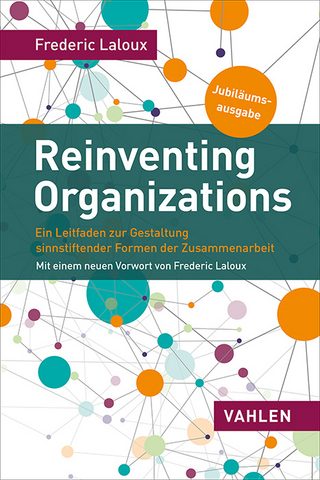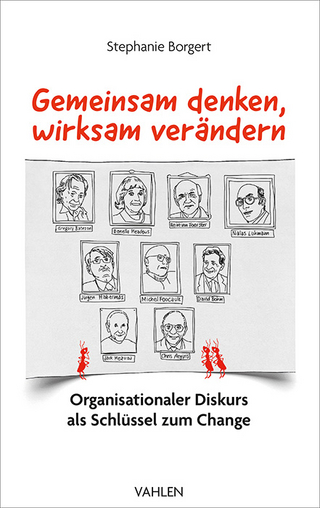Sustainable Business Model Design
Lüdeke-Freund, Breuer & Massa (Verlag)
978-3-9824003-0-3 (ISBN)
They present 45 patterns for the design of next generation sustainable business models, illustrating how innovative companies and visionary entrepreneurs have implemented them, what sustainability challenges they have solved and what innovation opportunities they have captured.The principles and practice of sustainable business model design are woven together here as never before. This book is a long overdue guide and inspiration on how to design next generation sustainable business models.
The patterns
Sustainable Business Model Design presents 45 business model solutions to ecological, social, and economic challenges. These 45 patterns help managers and entrepreneurs to develop new businesses that create sustainable value.
Three examples:
1. Customer Financing
When potential customers cannot afford or do not want to purchase a new, uncommon, or radically different offering, the Customer Financing pattern can help. Leasing, renting, or progressive purchasing schemes can be a door opener for sustainable offerings.
2. Green Razor and Blade
Most companies still depend on growth – but how to avoid similarly growing negative impacts on the environment? The Green Razor and Blade pattern unbundles long-living products and short-lived consumables and thus allows mitigating the negative effects of growing businesses.
3. Social Freemium
Ecologically and socially superior offerings often face a lack of demand. Limited purchasing power of target groups or competitors’ lower prices can lead to critical market barriers. The Social Freemium pattern helps in overcoming these barriers with free basic offerings.
Florian Lüdeke-Freund is Professor for Corporate Sustainability at ESCP Business School Berlin and founder of SustainableBusinessModel.org. He studies sustainable business models for more than a decade and published various highly-cited journal articles in this field, for example, in Business & Society, Journal of Business Ethics, Journal of Industrial Ecology, and Organization & Environment. As Associate Editor of the Journal of Business Models and Co-Chair of the International Conference on New Business Models he is passionate about developing a vibrant community of sustainable business model experts.
Henning Breuer is Professor for Business Psychology at HMKW Berlin, and runs a small innovation consultancy named UXBerlin. Since 2001 he works with large companies, public organisations, and start-ups, providing consulting on innovation management and culture, sustainable business models, future scenarios, and ethnography. Henning co-authored numerous scientific publications including a book on Values-Based Innovation Management. As an academic, he worked at the University of Chile (Santiago) and Waseda University (Tokyo).
Lorenzo Massa researches, teaches, consults, and speaks in the fields of strategy, innovation, design and sustainability. He is Managing Director of the Business Design Lab and Professor at Business School Aalborg University. Lorenzo is also member of the World Economic Forum’s expert network for Innovation and adjunct faculty for executive education at École Polytechnique Fédérale de Lausanne (EPFL), the International Academy of Sport Science and Technology (AISTS), Frankfurt School of Finance and Management as well as Bologna Business School (BBS).
»A must-read for everyone interested in sustainable business model innovation!« – Oliver Gassmann, author of ‘The Business Model Navigator’
»This is a wonderfully succinct and accessible way to understand sustainable business models. It’s exactly what business needs now!« — Pratima (Tima) Bansal, Ivey Business School
»Business model innovation has always been a major driver of Interface’s sustainability journey. Lüdeke-Freund, Breuer, and Massa have written the first comprehensive guide on designing sustainable business models. I wish we had had this book 25 years ago!« — Connie Hensler, Interface, Inc.
»Sustainable Business Model Design offers a ‘language’ — that different stakeholders can use to design business-led solutions to sustainability challenges. A much-awaited guide and a must read for everyone interested in the role of business in the future of our planet.« – Bruno Oberle, Director General IUNC
| Sprache | englisch |
|---|---|
| Maße | 156 x 231 mm |
| Themenwelt | Wirtschaft ► Betriebswirtschaft / Management ► Planung / Organisation |
| ISBN-10 | 3-9824003-0-9 / 3982400309 |
| ISBN-13 | 978-3-9824003-0-3 / 9783982400303 |
| Zustand | Neuware |
| Haben Sie eine Frage zum Produkt? |
aus dem Bereich




